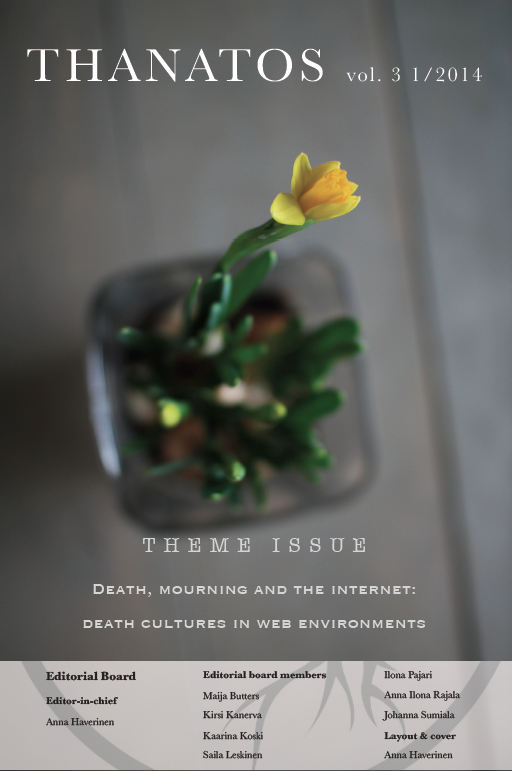Post mortem digital identities and new memorial uses of Facebook: Analysing the memorial page creators’ identity.
Abstrakti
As a privileged site for individual identity building, the Web and its uses have reorganised social relationships. Nowadays, the persistence of digital data after the death of the user who created them raises several questions. What happens to the identity data of web users after their death? Do they care about them while they are still alive? How do their relatives deal with these data? How do major actors of the Web, such as Facebook and Google, manage them? For a few years now, international research has been exploring the social issues raised by profiles of deceased, as well as changes in mourning practices on the Web. In France, only a few research projects have been conducted on this theme. The study of death enlightens social structure and raises individual and collective questions for example on the historical conceptions of the body and self-representation. One such question asked in this study was how relatives reconstruct digital identity on Facebook after the death of a family member? In this contribution, we present the first analysis of the enunciation subject in Facebook profiles and pages paying tribute to a deceased by examining the identity of the creators of fifteen French memorial pages on Facebook. This corpus is analysed using a pragmatic semiotic approach, which considers social discourse as constitutive acts of social relations and places strong emphasis on the technical dimension of objects supporting communication phenomena (Meunier & Peraya 2004).
Tiedostolataukset
Julkaistu
Numero
Osasto
Lisenssi
Copyright (c) 2023 Fanny Georges

Tämä työ on lisensoitu Creative Commons Nimeä-EiKaupallinen-EiMuutoksia 4.0 Kansainvälinen Julkinen -lisenssillä.





